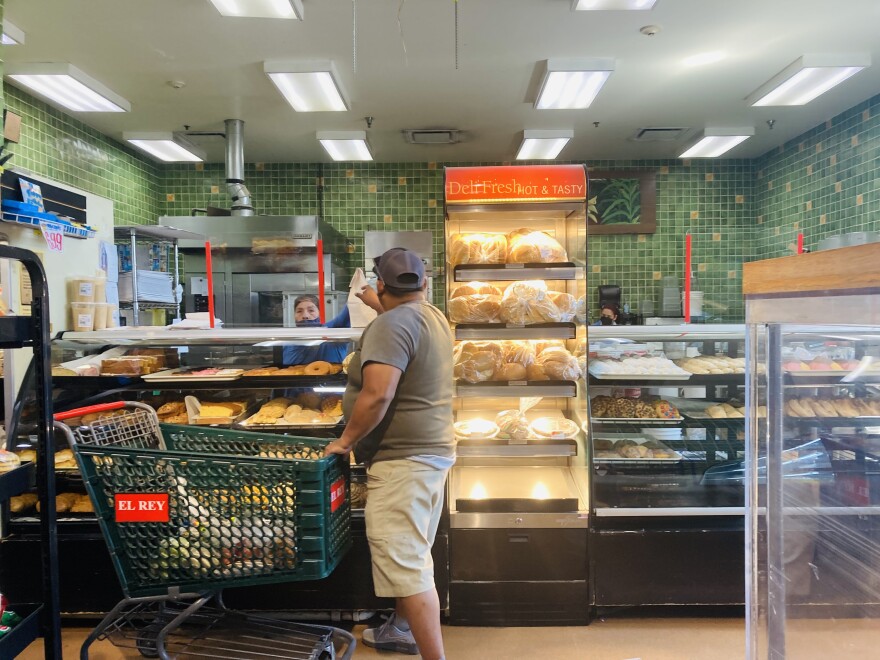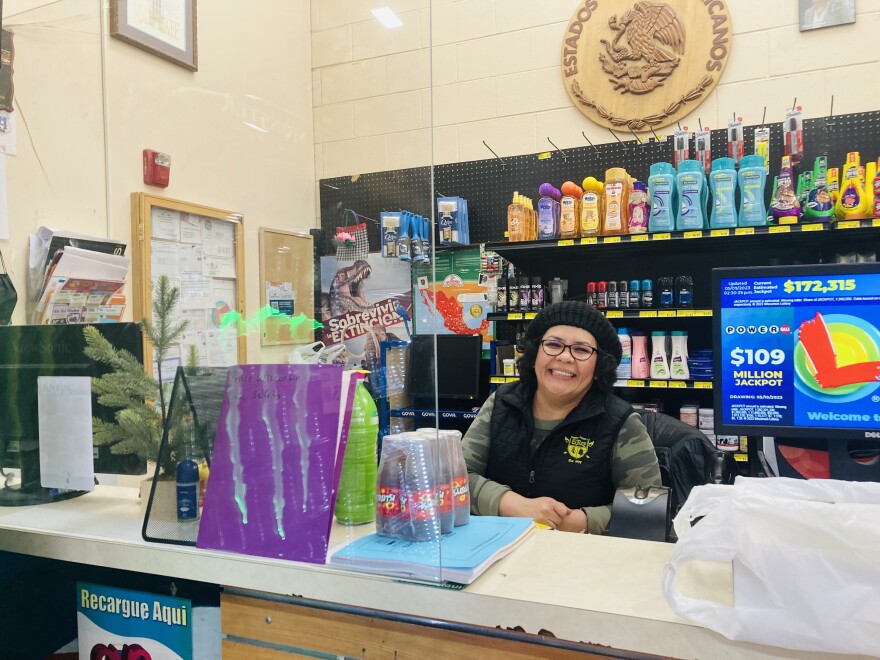This month marked El Rey’s 45th anniversary. The brothers Ernesto and Beto Villarreal opened the first El Rey in 1978. They were following the footsteps of their father, who ran a small store in the 1960s that served Mexican immigrants, like themselves, in Milwaukee.
Years later, the Hispanic grocery has grown to include four stores and a tortilla factory that supplies local restaurants with chips and tamales. It’s one of the largest Hispanic-owned businesses in the state.
Over time, El Rey’s offerings have evolved along with Milwaukee’s immigrant community. At first, Milwaukee’s Hispanic people largely came from Mexico, so El Rey primarily offered Mexican products. As new immigrant communities came from the Caribbean and Central and South America, the store evolved to cater to their tastes and traditions as well.

Once you make it past El Rey's bustling parking lot, you're rewarded with abundance. You can get anything at El Rey: candy, cakes, fresh-cut fruit, pan dulces from the bakery. Keep walking, and there's a counter where you can order hot food. There's construction workers taking a break over nachos, families eating lunch together.
And then, there's the produce section, the beating heart of the store. Gleaming piles of limes and roma tomatoes. Mangos, guavas, and papayas so ripe the air is sweet.
Some people come here with a plan. Or, in Laytoya Williams’ case, a vision. We find her on a busy afternoon at El Rey, checking out vegetables in the produce section.

"Right now, I'm looking for some vegetables to go into it because I want to make a chicken pot pie soup," Williams says.
This is her first time making chicken pot pie soup, but she plans to include peas, green beans, corn, potatoes. "The main thing is the sauce," she adds.
Others come to shop for basics. Everyone we talk to tells us how great the groceries are here. The produce is fresh, affordable. And, for many people who immigrated to Milwaukee, El Rey stocks the fruits and vegetables that help them recreate dishes from home.
When we meet Janu Maran, she’s out running errands with her 15-year-old son. We catch her on a trip into El Rey for a bag of onions. Her son is over by the pineapples, hiding from the mic.

"I love El Rey," Maran says. "[El Rey is] so fresh and everything is cheap, right? For everybody, it’s better."
We’re about to leave the produce section when we hear a knocking sound.
A customer is crouched down, rapping his knuckle down a line of watermelons. His name is Javier. He’s from Veracruz, Mexico. He plans to make agua fresca with his handpicked watermelon.

Javier shows us how to pick the perfect watermelon.
It should sound "more crispy," he says. "Like this, it’s ready. It sounds more hollow. If it doesn’t sound hollow, it’s not ready."
We make our way to the front of the store, where there’s a service counter. Above it, there are pictures of the Pope, Virgen de Guadalupe, and the Villarreal brothers. Nancy Perez is sitting behind the counter. She’s a supervisor at the store and a longtime employee of 22 years.

The word "family" came up frequently in our conversations with workers at El Rey.
"Yes, it’s here where you form more part of a family than just coworkers," Perez says. "We spend more time here than at home. All the time it’s being at work more than being at home. There are coworkers that are working together from 3 a.m. until 12 p.m.. So yes, it’s more camaraderie and family than simply coworkers."
Perez says El Rey is the go-to store for Hispanic people in Milwaukee.
"Now, there's a new community coming to the store, like people from Nicaragua and El Salvador," Perez says. "We are trying to offer products from their home countries. First, it was us Mexicans who wanted to find our products from home that we couldn't find elsewhere. Now, it's them. Now, it's more of an international store."
Forty-five years after he and his brother, Beto, opened the store, Ernesto Villarreal is proud of the impact they’ve had on the community. Beto passed away in 2011.
"I think there’s been a big impact," Villarreal says. "For 45 years we’ve been doing many things. For example, parents bring their kids to cash their first check, very proudly. And these are nice memories. Or people from Puerto Rico, they come to cash their checks from home. And there are few places where they can do that. I think we’ve done something that people feel proud of."
We ask Villarreal what El Rey looks like, 45 years from now.
"I think that El Rey will be here, because the grandkids are starting to work here," he says. "The second generation have already been helping us and now it’s the third generation that have started to help with the store. I feel really proud of them because they like working at the store. They feel really proud of working at the store."

We asked people whether they had fond memories of the store, and most of them said no. There's not really any one thing. It's just their grocery store.
Maybe it's because El Rey's presence in their lives is constant. It's in the mango a mother cuts for her son, in chaotic family feasts, in the money wired to loved ones far away.
The store gives to the community, and the community gives to their loved ones.





